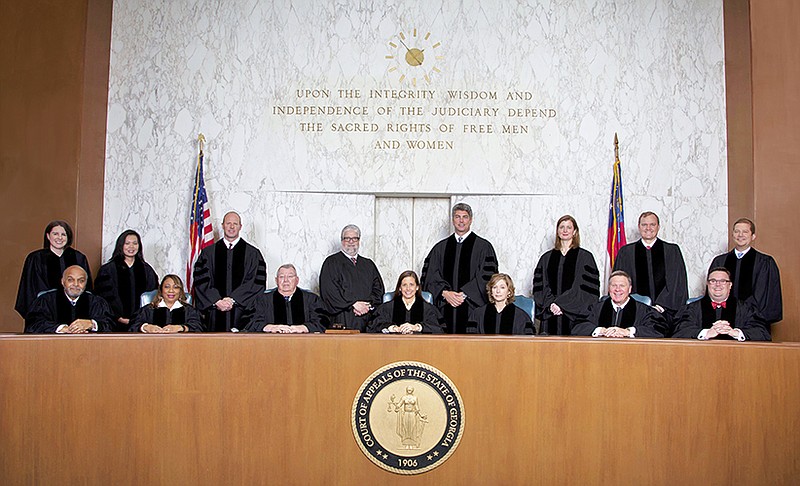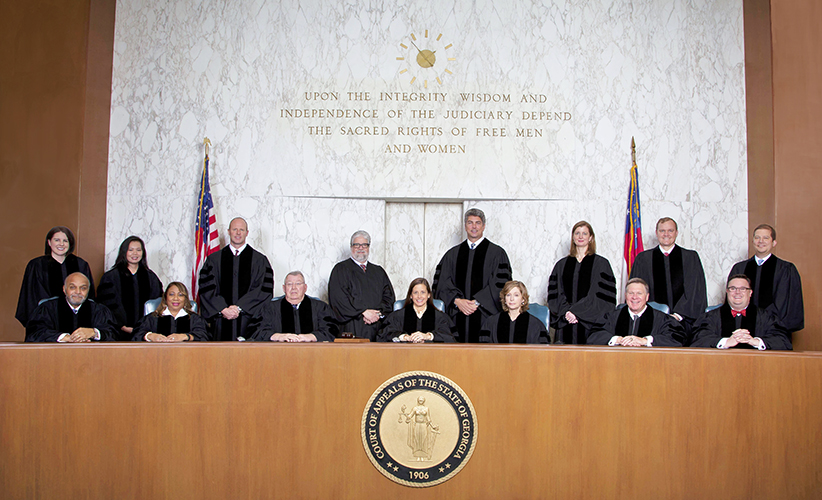ATLANTA - On the five-year anniversary of the Deferred Action for Childhood Arrivals immigration policy, attorneys argued about whether the affected students can receive in-state tuition at Georgia colleges.
The policy, begun under President Barack Obama in 2012, allows some undocumented young people who came to the U.S. as children to be eligible for work permits and apply to be free from deportation actions for two-year periods.
Senior Assistant Attorney General Russell Willard told Georgia Court of Appeals justices Thursday morning that state law prevents the Board of Regents from granting DACA students the lower tuition rate. In most cases, he said, non-citizens can't get that benefit.
He pointed to a statute that lists some exceptions: permanent residents, refugees and people who came here under asylum.
"It asks them to do something they don't have the power to do," Willard said of a challenge to the Regents' policy. "Second, it asks them to commit an illegal act."
In response, immigration attorney Charles Kuck called the regents' interpretation "painstakingly, deliberately terrible policy implementation." Kuck represents a group of 10 Georgia DACA students.
The Court of Appeals justices now will contemplate the case arguments. There is no deadline for their ruling. But no matter the outcome, Kuck said, the loser will likely petition the state Supreme Court to consider the case, too.
On Dec. 30, a Fulton County Superior Court judge sided with the students in a summary judgment, saying the federal government's policy deems DACA recipients as lawfully present in the United States. Five months into the Donald Trump administration, the policy has not changed.
In its appeal, the regents argued that the superior court judge improperly relied on a Q&A section of the U.S. Citizenship and Immigration Services website. The section in question says that the Department of Homeland Security considers DACA recipients to be here legally.
A federal judge sided in favor of the regents in a similar lawsuit last month, in which a group of DACA students challenged a policy that bars them from some schools, including the University of Georgia and Georgia Tech. U.S. District Court Judge Thomas Thrash ruled that the policy can stand, in part, because DACA is not law but instead a presidential policy - a "temporary reprieve" from the threat of deportation.
On Thursday, in his argument for the regents, Willard pointed to an October 2015 policy letter written by then-Secretary of Education Arne Duncan, who told the heads of U.S. colleges and universities that DACA students do not qualify for federal financial aid.
But, he added, that policy does not prevent students from receiving financial benefits from state governments.
Willard also argued the lawsuit should not have succeeded because regents legally cannot be individually sued, as Kuck did in this case. Kuck told the justices Thursday morning that this argument creates a situation in which it's impossible for lawyers to challenge improper policies.
To qualify for DACA, a student must be under 31 and have come to the United States before they turned 16. They also must either be in high school, have graduated from high school, received a G.E.D. or been honorably discharged from the U.S. military. Also, applicants cannot have a felony or "severe misdemeanor" on their records.
"Education is a human right," Maria Carrillo, a 22-year-old Kennesaw State student, said after Thursday's hearing. "They shouldn't ban us from that. We are human, and it shouldn't even be a question. We really hope we get a good outcome from this."
Outside the courthouse, Jaime Rangel stood along with about 40 other students. Twenty-six years ago, Rangel's mother was pregnant with him in New Jersey, but she was not a legal resident there at the time. She heard government officials would take him away if she gave birth in the United States, so she returned home to Mexico. She gave birth three weeks later.
She then returned to Jersey City before the family moved to Murray County when Rangel was in second grade. There, his mother and father worked in a carpet mill. After graduating high school in 2009, Rangel tried to take classes at Dalton State.
But he said tuition was too expensive. A three-credit class costs out-of-state students $1,900. In-state students, on the other hand, spend $700.
To pay for tuition, Rangel lived at home, pulled shifts at a mill, mowed lawns and played the trumpet in a Mexican regional band. As a DACA student, he has taken spot classes here and there, studying economics and finance. But he has not had much momentum. He thinks he's technically a junior right now.
Dalton State itself would benefit from more students such as Rangel: Its administrators hope to turn the school into a Hispanic-Serving Institution, a designation that would open the door for a slew of federal grants.
Dalton State would be the first such college in Georgia. But to do so, the school must boast a 25 percent Latino population. This past spring semester, the population sat at 24.8 percent.
Rangel wants to go to law school and work in the Georgia General Assembly, advocating for business-friendly policies. But the development is slow-going. He has watched high school classmates earn master's degrees and start their families. He's still waiting.
"You're losing time," he said. "God gives you 24 hours a day. God knows if you're going to be here tomorrow. The fact that I've already lost two semesters [while judges consider this lawsuit], it angers me. I should have been already working on my master's or working on my J.D."
For the last two years, after meeting the right people at a networking event, Rangel has worked for Donnelly McDonald Group, a governmental affairs and public policy firm in the state capitol. He understands how change works. He also believes a quicker, more effective route could sit in Washington - if enough politicians wanted to help people like him.
"They need to get on to it," he said. "It takes the load off people like the Board of Regents, the state legislature, the state court of appeals. At the end of the day, the federal government has to step up and solve this issue."
Contact staff writer Tyler Jett at 423-757-6476 or tjett@timesfreepress.com. Follow him on Twitter @LetsJett.

